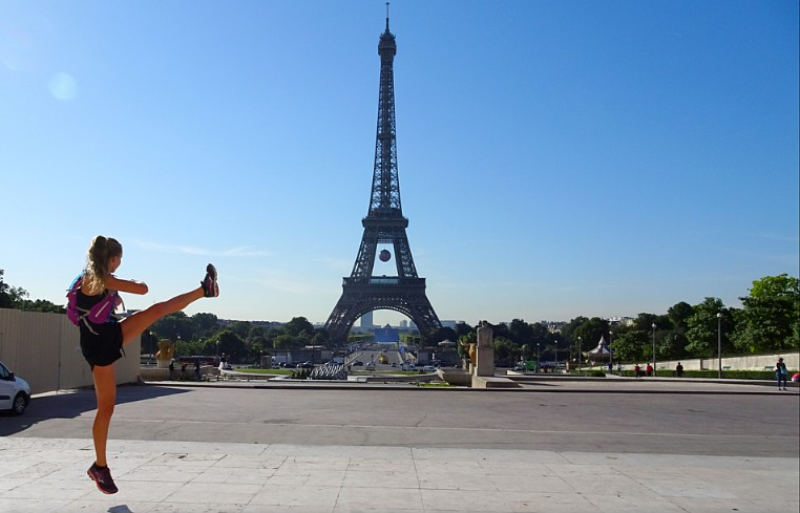Rice Global Paris Summer Program | 2026 Course Listing
KINE 301 Human Physiology
SESSION 1 | Monday, May 18 - Friday, June 5, 2026
Instructor:
Laura S. Kabiri
Paris Summer Session 1
Monday, May 18 - Friday, June 5
| Move-in May 17 | Move-out June 6
(Summer 2026)

ENROLLMENT UPDATE (1/15/26): This course is now FULL. Students may be added to a waitlist if this course is still their first choice.
Course Description
Spectacle or science? Ethical or abominable? Mass graves moved. Nobel Prizes. Before America was even an idea, Paris has played a key, and sometimes controversial, role in human physiology. This revolutionary city claims the “Father of Physiology” in Claude Bernard, as well as numerous other influential scientists, educators, and physicians who have significantly impacted our knowledge of how the human body works. In fact, it was a French doctor who first used the term “physiology” in the early 1500s.
KINE 301: Human Physiology addresses fundamental and advanced principles of how the human body works at the molecular, cellular, tissue, organ, and organism levels, with emphasis placed on mechanisms of function and homeostasis as achieved through the coordinated function of homeostatic control systems. This course is for anybody with a body who wants to know a bit more about how it works! It is also a core course required for Sports Medicine & Exercise Physiology majors, and great for MCAT preparation!
This summer KINE 301 is going to PARIS! This special offering of the course will build upon the solid curriculum established in the traditional campus-based KINE 301 course. However, the Paris-based version will have the advantage of bringing the curriculum to life through immersive local activities highlighting the evolution and rich influence of Paris on the science of human physiology.
As with the campus-based version, the Paris-based course will be taught in a flipped classroom format. Woven throughout the curriculum, the intersection of Parisian physiologists with anatomy, art, and medicine in Paris will be highlighted. Morning sessions will be spent in core curriculum pursuits online through Canvas. Afternoon sessions will consist of lectures exploring Parisian history and contributions to human physiology, followed by related excursions and experiences around the city. Students will complete a journal of these supplemental lectures and activities as part of a Paris-specific final course project and presentation.
Credit Hours
This course is 3 Rice credit hours.
Does this course have prerequisites?
No
Does this course fulfill a Distribution Requirement?
Yes, students will receive D3 credit for this course.
Application Deadline
Priority Deadline: December 10, 2025
Final Application Deadline: February 1, 2026
For details on these two deadlines, please navigate to the Application Timeline section of the Program Information & FAQs page.
Questions?
For questions regarding the course content, please contact the course instructor (see below).
For questions regarding the program (budget, application process, financial aid, global awards), first read through the Rice Global Paris Summer Program Information and FAQs page on our website. If you cannot find the answer to your question, email us at globalowls@rice.edu.

Laura S. Kabiri, Department of Kinesiology
Dr. Kabiri's teaching responsibilities in the Sports Medicine & Exercise Physiology program include, but are not limited to, Human Physiology, Human Anatomy with Lab, Medical Terminology, Human Physiology Lab, and Movement Disorders. She has created several novel courses and labs at Rice including a virtual cadaver dissection laboratory component for Human Anatomy for which she was awarded the national Sam Drogo Technology in the Classroom Award. In her spare time, Laura enjoys reading inspirational historical fiction, volunteering in the community, working with animal groups, and exploring new places and cultures through food and music.